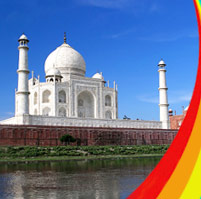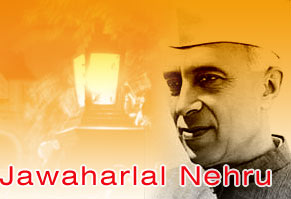Apart form his role as a freedom fighter and a
statesman, Jawaharlal Nehru is widely regarded the founding ideologue of
the Indian Republic. Education in some of the best institutions,
extensive travel in Europe and a sound grasp of world history all
contributed towards shaping the thoughts and philosophy of Jawaharlal
Nehru. Throughout the freedom struggle Nehru remain devoted to Gandhian
principles and the precepts of nonviolent movement.
Much of the initiatives launched by Jawaharlal Nehru as India's prime
minister were the manifestations of his philosophy and beliefs. Right
from his youth Nehru espoused socialism and as the head of state, he
laid the foundation of a socialist economy. Under him, the Indian
government exerted control over the fundamental sectors of the economy
and spawned mammoth public sector enterprises.
Jawaharlal Nehru also projected India as a secular nation and promoted
religious tolerance. He believed that secularism will act as the uniting
force in the diverse, multi-religious Indian society. Besides taking
steps to improve the status of Indian women, Nehru also created
frameworks for better representation of minorities and socially
disadvantaged groups in government service.
On the international front, non-alignment was basic premise of the
philosophy of Nehru. He was one of the co-founders of the Non-Alignment
Movement representing nations that maintained neutrality in the
East-West confrontation of the Cold War era. Nehru was one of the
architects of the doctrine of Panchsheel which was drawn up to improve
relations between India and China after the annexation of Tibet by the
Chinese.









